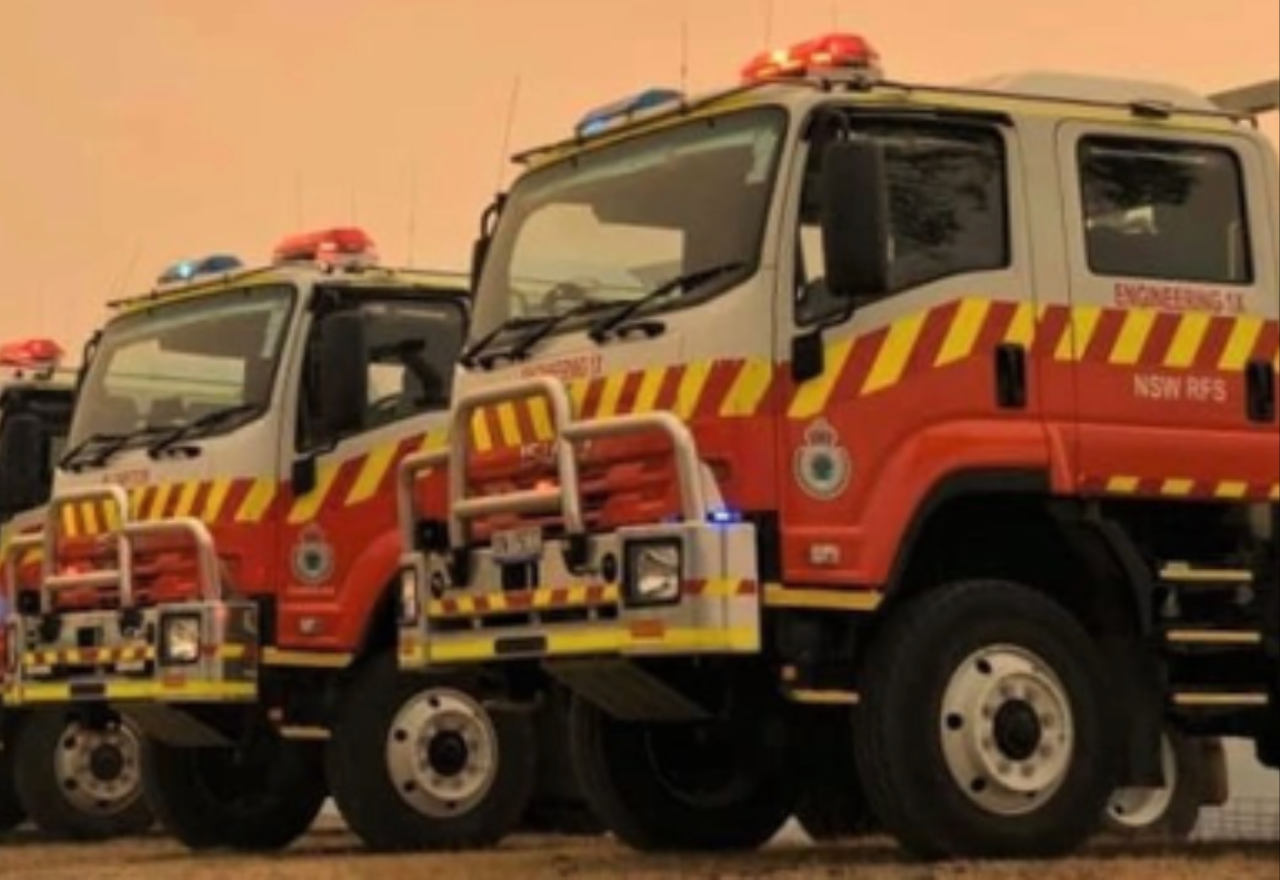State and federal cost shifting costs local ratepayers $430 a year
Simon Mumford
17 July 2025, 8:00 PM
 NSW Rural Fire Service vehicles
NSW Rural Fire Service vehiclesCost Shifting. Two words that anger and frustrate local councils in NSW.
Cost shifting occurs when services that were once funded by state and federal governments are now paid for by local councils. A new report, “Cost Shifting 2025: How State Costs Eat Council Rates”, prepared by independent consultants Morrison Low, shows a 10% increase in cost shifting in three years, which results in a $500 cost per ratepayer per year in NSW. For regional town/cities, the total is $429.60.
It further detailed how Councils across NSW are now absorbing a staggering $1.5 billion in cost shifting from State and Federal governments each year – a cumulative $11.3 billion over the past decade.
The Country Mayors Association of NSW (CMA), of which Lismore City Council is one of 92 rural and regional members, has reiterated their frustrations and the fact that the impacts are more deeply felt in rural, regional and remote communities.
“On behalf of our CMA Board, I extend our congratulations to our sister organisation LGNSW. It is important that our Governments and communities understand the big picture impacts of adding to our expenses, in a time of inadequate funding for rural, remote and regional communities,” CMA Chairman and Temora Shire Mayor Rick Firman OAM said.
“The figures are not surprising, but they are disturbing and hopefully enlightening, as unprecedented operational cost increases in recent years and constrained income growth make financial sustainability a mission impossible for some.”
“It is clear that the impacts of cost shifting are bigger barriers to financial sustainability for non-metropolitan Councils. Some of our rural and remote members have a small rate base that is essentially stagnant or even declining. Over 70 per cent of some country Councils’ revenue is grants, but that varies annually, and the Federal Government’s (untied) Financial Assistance Grants are half of what they once were. We will continue to lobby the Federal Government to return them to one per cent of national taxation revenue, as we work to raise awareness of the ever-growing demands on rural, regional and remote councils in NSW.”
Mayor Firman said that while CMA members feel the brunt of cost shifting and funding reduction impacts, he is optimistic that the NSW Government will make some positive decisions in the near future.
“The NSW Government’s Public Accounts Committee handed down some appropriate recommendations after its’ “Inquiry into the assets, premises and funding of the NSW Rural Fire Service”. As one of the most inexplicable examples of cost shifting, our Member Councils in NSW are forced by the State Government to wear the financial impacts of having Rural Fire Service Assets on their books, despite not actually owning them.
"The ‘Red Fleet’ is something that the CMA has lobbied intensively on, and we acknowledge the NSW Treasurer, the Hon. Daniel Mookhey MLC, NSW Emergency Services Minister the Hon Jihad Dib MP and NSW Local Government Minister the Hon. Ron Hoenig MP have been working hard on resolving the issue.
Mayor Firman recalled that Country Mayors were underwhelmed with the recent (seemingly Western Sydney-focused) State budget. “It saw further funding cuts to local galleries and other valued community services, meaning many of our Member Councils will carry more financial responsibility, regardless of their capacity to absorb the costs that the State Government saves.”
“The Transport for NSW reclassification program is also to be commended. With that, we could see a good number of road maintenance burdens dumped onto Councils go back into State Government management,” he said.
Lismore Mayor Steve Krieg told the Lismore App that he doesn't share Mayor Firman's optimism.
"Organisations, like the CMA and the Regional Cities Forum, which Lismore councils are part of, both of those are strong and loud advocacy voices, but unless there's willingness from state and federal governments to to actually assume their responsibilities of looking after these things, like emergency services and the like, things aren't going to change in a hurry.
"It looks better for their books and balancing their budgets. And that's the problem that local government deals with. We're probably the lowest in the food chain, sadly, and that's why we need to unite with these organisations to present a much louder voice."
"Take emergency services as an example. It is cost-shifting because councils have to take on what they call the red fleet. All of those rural fire services, trucks and assets are on Council's books, even though they're supposed to be funded by the state government. We have to take those on and depreciate them through our accounting system. And the fact is that the state government double dips on these things. It's also on everyone's insurance policies, but it's also on everyone's rate notices as well.
"So, it's an ongoing problem that country mayors and regional cities, both groups, have been strongly advocating to take the pressure off councils a little bit. The state needs to allocate the funds where they're supposed to go. And like I said before, it's very much creative accounting in a lot of respects of both state and federal governments, but it puts immense pressure on local governments' financial sustainability."

